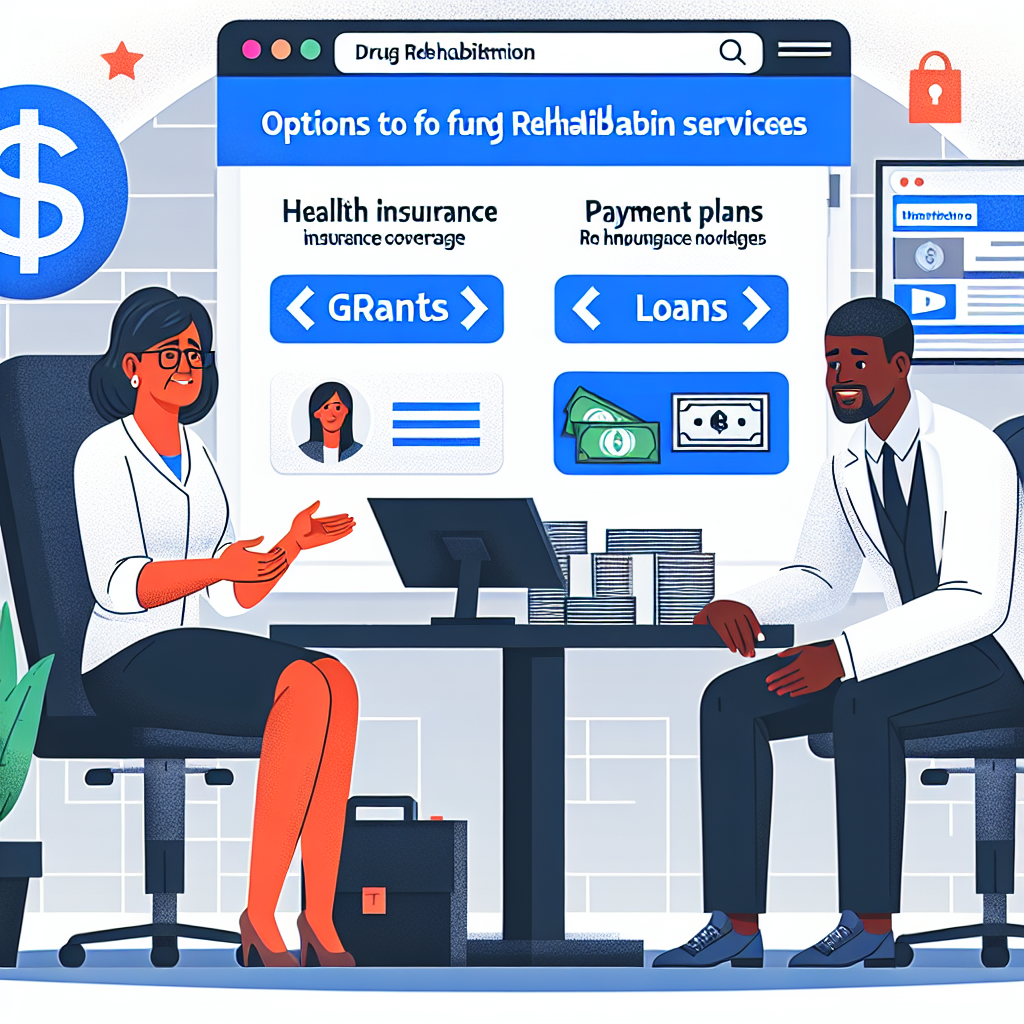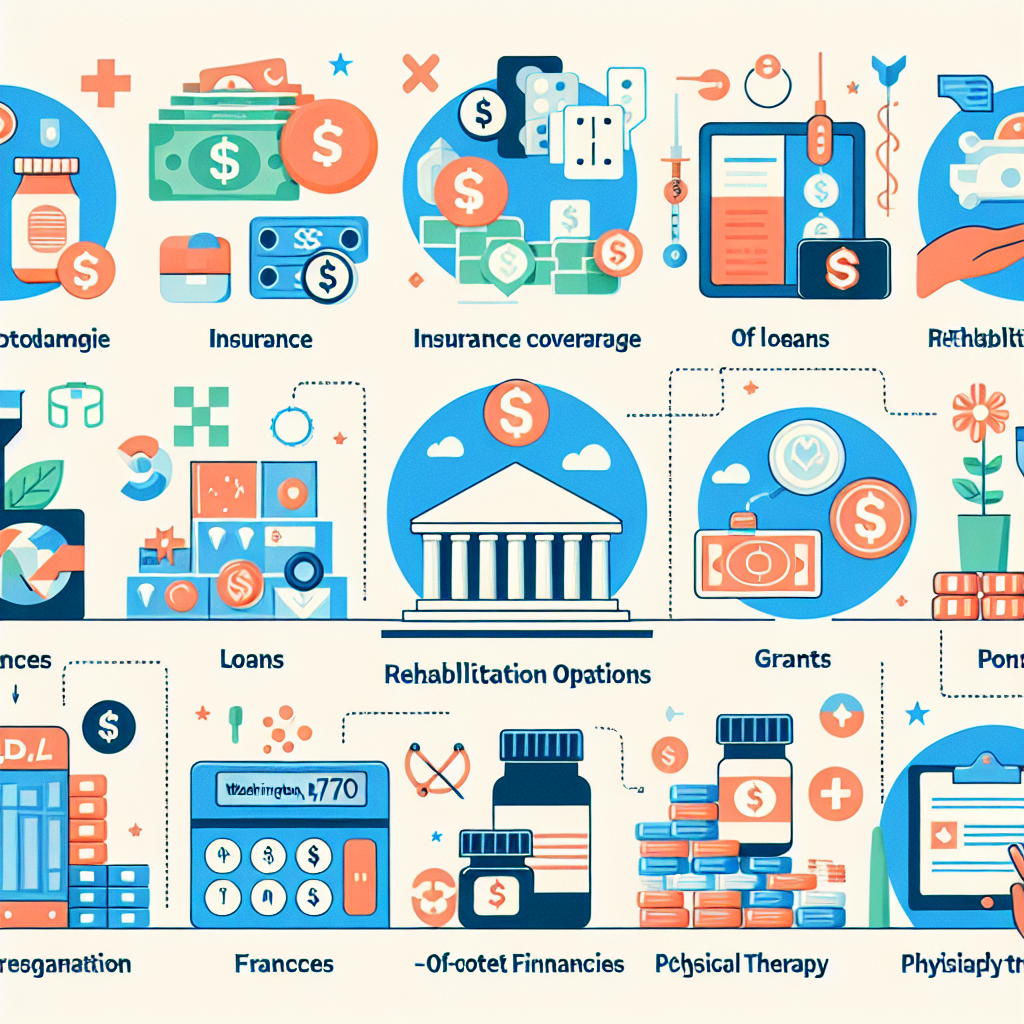-
Table of Contents

“Navigating Rehab Costs in D.C.: Your Guide to Affordable Recovery”
Introduction
Paying for rehab in Washington, D.C. involves understanding various financial options and resources available to cover the costs of addiction treatment. Individuals seeking rehabilitation services can explore several avenues, including private health insurance, Medicaid, Medicare, state-funded programs, sliding scale fees, and financing plans offered by treatment centers. Additionally, some non-profit organizations and charities provide grants or scholarships to help offset expenses. By researching and utilizing these resources, individuals can find a feasible way to afford the necessary care for recovery.
Exploring Insurance Options to Cover Rehab Costs in Washington, D.C
Navigating the path to recovery from addiction is a courageous journey, and one of the significant concerns for many individuals and families is how to afford the necessary treatment. In Washington, D.C., exploring insurance options to cover rehab costs can be a crucial step in making rehabilitation accessible and manageable. Understanding the various insurance plans and how they can be utilized to cover rehab expenses can provide a sense of relief and hope for those seeking help.
First and foremost, it is essential to recognize that the Affordable Care Act (ACA) has made significant strides in ensuring that mental health and substance use disorder services are considered essential health benefits. This means that most insurance plans, including those available through the Health Insurance Marketplace, are required to cover these services. For residents of Washington, D.C., this translates into a broader range of options when it comes to selecting an insurance plan that includes coverage for rehab.
Employer-sponsored health insurance is another common avenue through which individuals can access rehab services. Many employers offer comprehensive health insurance plans that include coverage for addiction treatment. It is advisable to review the specific details of your plan or speak with a human resources representative to understand the extent of coverage available. This can include inpatient and outpatient treatment, counseling, and medication-assisted therapy, among other services.
For those who do not have access to employer-sponsored insurance, Medicaid can be a vital resource. Washington, D.C. has expanded Medicaid under the ACA, which means that more low-income individuals and families are eligible for coverage. Medicaid plans typically cover a wide range of addiction treatment services, making it a viable option for those who meet the eligibility criteria. Applying for Medicaid can be done through the D.C. Health Link website or in person at a local service center.
In addition to Medicaid, Medicare is available for individuals over the age of 65 or those with certain disabilities. Medicare Part A and Part B can cover different aspects of addiction treatment, including inpatient care and outpatient services. Understanding the specifics of what Medicare covers and any potential out-of-pocket costs is crucial for planning and budgeting for rehab.
Private health insurance plans, whether purchased through the Health Insurance Marketplace or directly from an insurance provider, also offer coverage for addiction treatment. These plans vary widely in terms of premiums, deductibles, and the extent of coverage. It is important to carefully compare plans and consider factors such as network providers, covered services, and any pre-authorization requirements. The Health Insurance Marketplace provides tools and resources to help individuals make informed decisions about their coverage options.
For those who find that their insurance does not fully cover the cost of rehab, there are additional resources and strategies to consider. Many rehab facilities offer sliding scale fees based on income, payment plans, or financial assistance programs. It is worth reaching out to the facility directly to discuss these options. Additionally, some non-profit organizations and community programs provide grants or scholarships to help offset the cost of treatment.
Ultimately, the journey to recovery is deeply personal and unique to each individual. By exploring and understanding the various insurance options available in Washington, D.C., individuals and families can take a significant step towards making rehab more accessible and affordable. This knowledge not only alleviates financial stress but also empowers those seeking help to focus on their recovery and embrace the possibility of a healthier, more fulfilling life.
Financial Assistance Programs for Rehab in Washington, D.C
Navigating the financial landscape of rehabilitation can be daunting, especially in a bustling city like Washington, D.C. However, understanding the various financial assistance programs available can make the journey to recovery more accessible and less stressful. One of the primary avenues for financial assistance is through government-funded programs. Medicaid, for instance, is a state and federally funded program that provides health coverage, including substance abuse treatment, to eligible low-income individuals. In Washington, D.C., Medicaid covers a range of services, from inpatient and outpatient treatment to counseling and medication-assisted therapy. For those who qualify, this can significantly reduce the financial burden of rehab.
In addition to Medicaid, the Affordable Care Act (ACA) has expanded access to substance abuse treatment by requiring insurance plans to cover these services. Many residents of Washington, D.C., can take advantage of this by enrolling in an ACA-compliant health insurance plan through the D.C. Health Link marketplace. These plans often cover a substantial portion of rehab costs, making it easier for individuals to seek the help they need without worrying about exorbitant expenses. Furthermore, the Mental Health Parity and Addiction Equity Act ensures that insurance coverage for mental health and substance use disorders is comparable to coverage for other medical conditions, providing an additional layer of financial protection.
For those who may not qualify for Medicaid or ACA plans, there are still other options to explore. Nonprofit organizations and charities often provide grants or scholarships specifically for rehab. Organizations such as the Substance Abuse and Mental Health Services Administration (SAMHSA) offer grants to individuals and treatment centers, helping to offset the costs of care. Additionally, local nonprofits in Washington, D.C., may have programs designed to assist residents in affording rehab services. Researching and reaching out to these organizations can uncover valuable resources that might otherwise go unnoticed.
Another viable option is to look into sliding scale payment plans offered by many rehab facilities. These plans adjust the cost of treatment based on an individual’s ability to pay, ensuring that financial constraints do not become a barrier to receiving care. By discussing financial concerns with the rehab center, individuals can often find a payment plan that aligns with their financial situation, making treatment more manageable.
Crowdfunding has also emerged as a modern solution for those struggling to finance their rehab. Platforms like GoFundMe allow individuals to share their stories and seek financial support from friends, family, and even strangers. While it may feel daunting to share such a personal journey publicly, many have found that the support they receive far outweighs the initial discomfort. This method not only helps raise funds but also builds a network of emotional support, which is crucial during the recovery process.
Lastly, employer assistance programs (EAPs) can be a valuable resource for those who are employed. Many companies offer EAPs that provide confidential counseling and financial assistance for employees dealing with substance abuse issues. Speaking with a human resources representative can provide insight into what specific benefits are available and how to access them.
In conclusion, while the cost of rehab in Washington, D.C., can be significant, numerous financial assistance programs are available to help alleviate this burden. By exploring government-funded programs, insurance options, nonprofit grants, sliding scale payments, crowdfunding, and employer assistance programs, individuals can find the support they need to embark on their journey to recovery. With determination and the right resources, overcoming financial obstacles is possible, paving the way for a healthier, more fulfilling life.
Q&A
1. **Question:** What are some insurance options available to pay for rehab in Washington, D.C.?
**Answer:** Insurance options to pay for rehab in Washington, D.C. include private health insurance, Medicaid, and Medicare.
2. **Question:** Are there any state-funded programs available to help cover the cost of rehab in Washington, D.C.?
**Answer:** Yes, Washington, D.C. offers state-funded programs and grants that can help cover the cost of rehab for eligible individuals.
Conclusion
Paying for rehab in Washington, D.C. can be managed through various means including private health insurance, Medicaid, Medicare, sliding scale fees based on income, state-funded programs, non-profit organizations, and personal savings or loans. It’s important to explore all available options and consult with rehab facilities to understand the specific financial assistance programs they offer.



